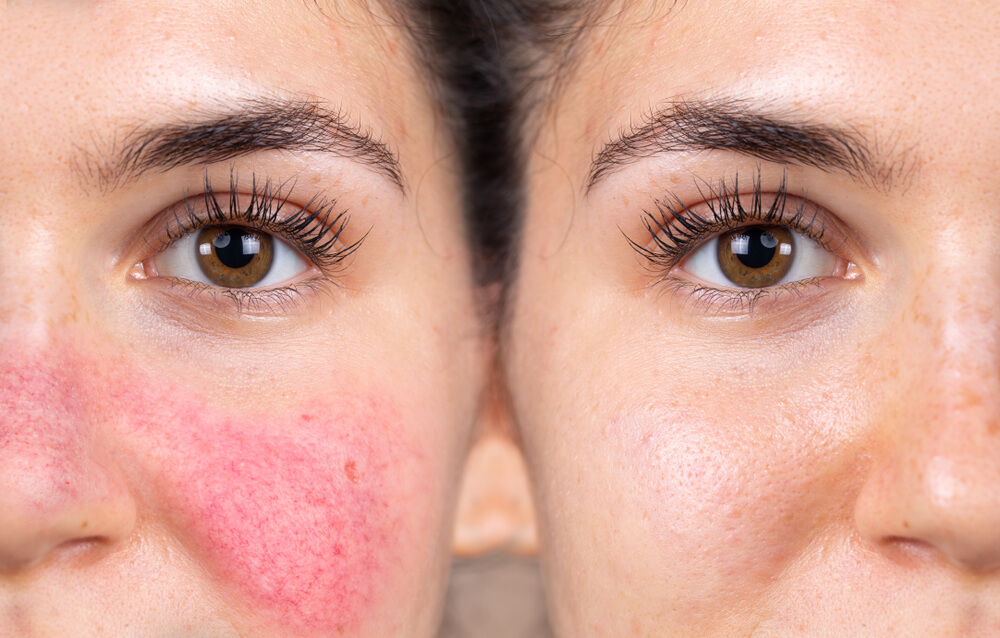Table of Contents
ToggleBenefits And Uses Of Aloe Vera
Aloe vera is a plant species that belongs to the Aloe genus. It is a short-stemmed plant with thick, fleshy leaves that contain a clear gel-like substance. The gel is rich in vitamins, minerals, and antioxidants, and has a variety of therapeutic properties. Aloe vera is used in a wide range of products, including cosmetics, skincare products, and dietary supplements. It is known for its moisturizing and anti-inflammatory properties and is used to treat various skin conditions, including sunburn, acne, and psoriasis. There are many benefits and uses of aloe vera.
The Skin-Healing Benefits of Aloe Vera
Aloe vera is good for the skin because it is rich in vitamins, minerals, and antioxidants that nourish and protect the skin. It has moisturizing properties that help to hydrate the skin and improve its elasticity, which can reduce the appearance of fine lines and wrinkles. Aloe vera also has anti-inflammatory and antimicrobial properties that can help to soothe and heal the skin, making it a popular ingredient in skincare products for treating sunburn, acne, and other skin irritations.
Types of Skin Conditions that Aloe Vera Can Treat

- Sunburns: aloe vera can help to soothe and heal sunburned skin, reducing pain, redness, and inflammation
- Acne: aloe vera can help to reduce inflammation, kill bacteria, and unclog pores, making it a popular ingredient in acne treatments
- Psoriasis and Eczema: aloe vera can help to reduce itching, inflammation, and redness associated with these conditions
How to Use Aloe Vera for Skincare
- Homemade aloe vera remedies: aloe vera gel can be used in a variety of homemade skincare remedies, such as face masks and moisturizers
- Store-bought aloe vera products: aloe vera is a common ingredient in many skincare products, such as lotions, creams, and sunscreens.
Side effects and precautions when using aloe vera on the skin
- Allergic reactions: some people may experience allergic reactions to aloe vera, such as itching, redness, or hives
- Skin sensitivity: aloe vera may cause skin irritation in some people, especially those with sensitive skin
- Interactions with medication: aloe vera may interact with certain medications, so it’s important to talk to a doctor before using aloe vera if you’re taking any medication
Aloe Vera for Digestive Health

Aloe vera is a natural remedy that has been used for centuries to improve digestive health. It has anti-inflammatory properties that can reduce inflammation in the digestive tract, and prebiotic effects that can promote the growth of beneficial gut bacteria. Aloe vera can also act as a natural laxative, helping to regulate bowel movements and alleviate symptoms of constipation.
Digestive Conditions that Aloe Vera Can Relieve
- IBS: aloe vera can help to alleviate symptoms of irritable bowel syndrome, such as bloating, cramping, and constipation. It may also help to regulate bowel movements and reduce the frequency of diarrhea or constipation.
- Ulcerative colitis: aloe vera can reduce inflammation in the colon, which can help to alleviate symptoms of ulcerative colitis. It may also help to promote the healing of the intestinal lining and reduce the risk of complications.
- Constipation: aloe vera can act as a natural laxative, promoting regular bowel movements and alleviating constipation. It may also help to soften stool and reduce discomfort during bowel movements.
How to Use Aloe Vera for Digestive Health
- Aloe vera juice: aloe vera juice can be consumed as a daily supplement to improve digestive health. It is important to choose a high-quality, pure aloe vera juice to avoid added sugars or other additives that may worsen digestive symptoms.
- Aloe vera supplements: aloe vera supplements are available in capsule or tablet form and can be taken daily to improve digestive health. They may be especially helpful for people who do not tolerate aloe vera juice well or who prefer a more convenient option.
Side effects and precautions when using aloe vera for digestion
- Diarrhea: consuming too much aloe vera juice or supplements can cause diarrhea. It is important to start with a small dose and gradually increase as tolerated to avoid this side effect.
- Allergic reactions: some people may experience allergic reactions to aloe vera, such as itching, redness, or hives. If you have a history of allergies, it is important to test a small amount of aloe vera before consuming larger quantities.
- Interactions with medication: aloe vera may interact with certain medications, such as blood thinners or diabetes medications, so it’s important to talk to a doctor before using aloe vera if you’re taking any medication.
Aloe Vera for Immune System Support

Aloe vera has been known for its medicinal properties for centuries, and one of its key benefits is its ability to boost the immune system. Here we explore how aloe vera can improve immune health and help fight off infections and diseases.
How Aloe Vera Can Boost the Immune System
- Aloe vera contains a variety of antioxidants and vitamins, including vitamins A, C, and E, that can help support immune function and protect against free radical damage.
- Aloe vera’s polysaccharides have been shown to enhance the activity of macrophages and natural killer cells, which are important components of the immune system.
Immune-Related Conditions that Aloe Vera can Help with
- Aloe vera has been found to have anti-allergic properties, making it effective at reducing symptoms of allergies.
- Aloe vera’s antimicrobial properties can help fight off infections, including bacterial, viral, and fungal infections.
- Aloe vera’s anti-inflammatory effects can also help alleviate symptoms of autoimmune diseases, such as rheumatoid arthritis and lupus.
How to Use Aloe Vera for Immune Support
- Aloe vera juice can be consumed daily as a supplement to boost immune function.
- Aloe vera supplements, which are available in pill or capsule form, can also be used to support immune health.
Side Effects and Precautions when Using Aloe Vera for Immune Support
While aloe vera is generally considered safe for most people, there are some potential side effects to be aware of, including digestive issues and allergic reactions. It is important to consult with a healthcare provider before using aloe vera supplements, especially if you are pregnant, nursing, or taking medications.
Aloe Vera for Pain Relief and Inflammation

Aloe vera has been used for centuries to treat a variety of ailments, including pain and inflammation. In this article, we will explore how aloe vera can help alleviate pain and reduce inflammation.
How aloe vera can alleviate pain and inflammation
- Aloe vera contains compounds that have been shown to have anti-inflammatory properties, which can help reduce swelling and pain.
- Aloe vera also has analgesic effects, which means it can help alleviate pain.
Types of pain that Aloe Vera can help with
- Aloe vera can help with joint pain, including conditions like arthritis.
- Aloe vera can also reduce muscle soreness after exercise or physical activity.
- Aloe vera may be effective at reducing headaches, including tension headaches and migraines.
How to Use Aloe Vera for Pain Relief
- Topical application: Aloe vera gel can be applied directly to the affected area for pain relief.
- Oral consumption: Aloe vera juice or supplements can be consumed orally to help reduce inflammation and pain.
Side Effects and Precautions when Using Aloe Vera for Pain Relief
While aloe vera is generally safe for most people, there are some potential side effects to be aware of, such as allergic reactions and digestive issues. It is important to consult with a healthcare provider before using aloe vera supplements, especially if you are pregnant, nursing, or taking medications. Additionally, aloe vera gel should not be used on open wounds or burns.
If you want to farm aloe vera, you can contact us
Conclusion
In conclusion, aloe vera is a versatile plant with numerous benefits and uses. Its chemical composition, including antioxidants, vitamins, and polysaccharides, makes it an effective ingredient for skin care, digestion, immune support, pain relief, and more. Aloe vera’s anti-inflammatory and antibacterial properties contribute to its ability to treat various skin conditions, digestive issues, and pain. However, it is important to note that there may be potential side effects and precautions to consider when using aloe vera, and it is always best to consult with a healthcare provider before using aloe vera supplements or products. Overall, aloe vera is a natural and beneficial addition to one’s health and wellness routine.

